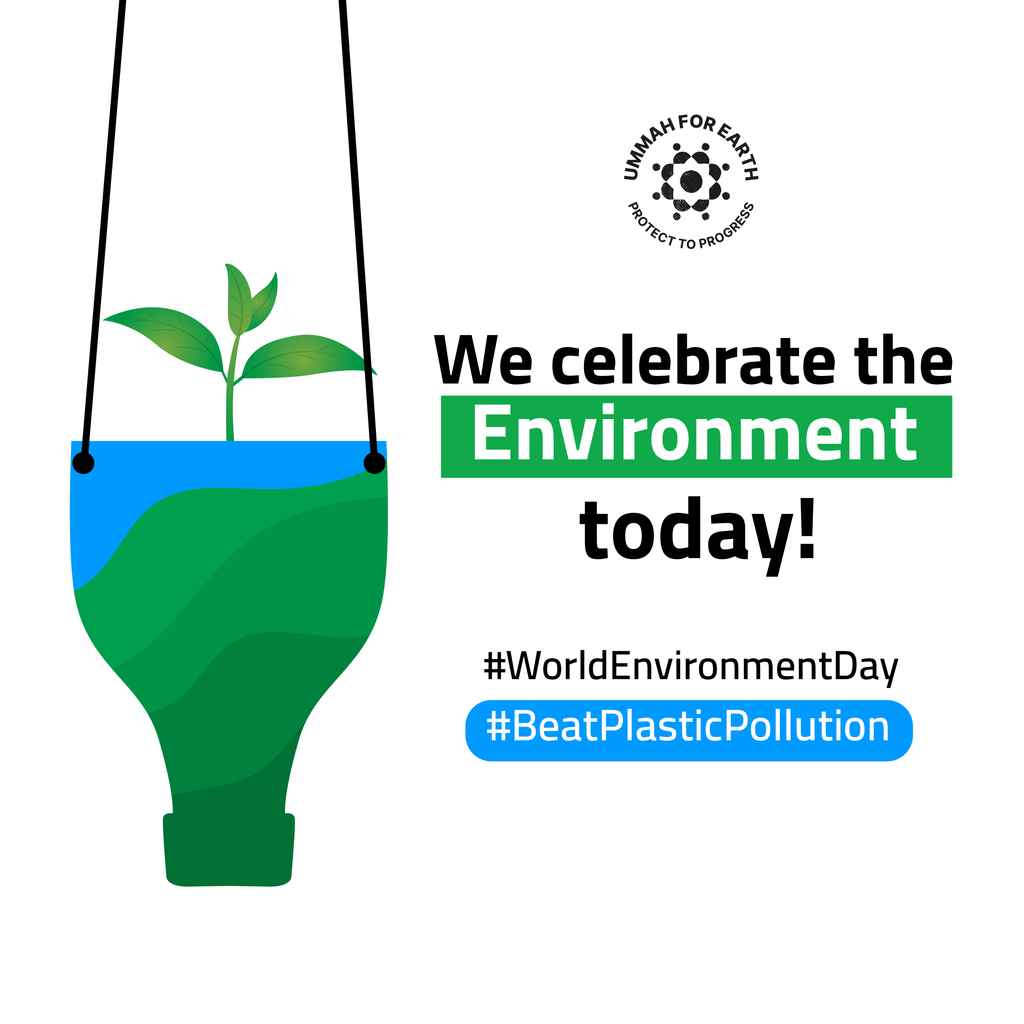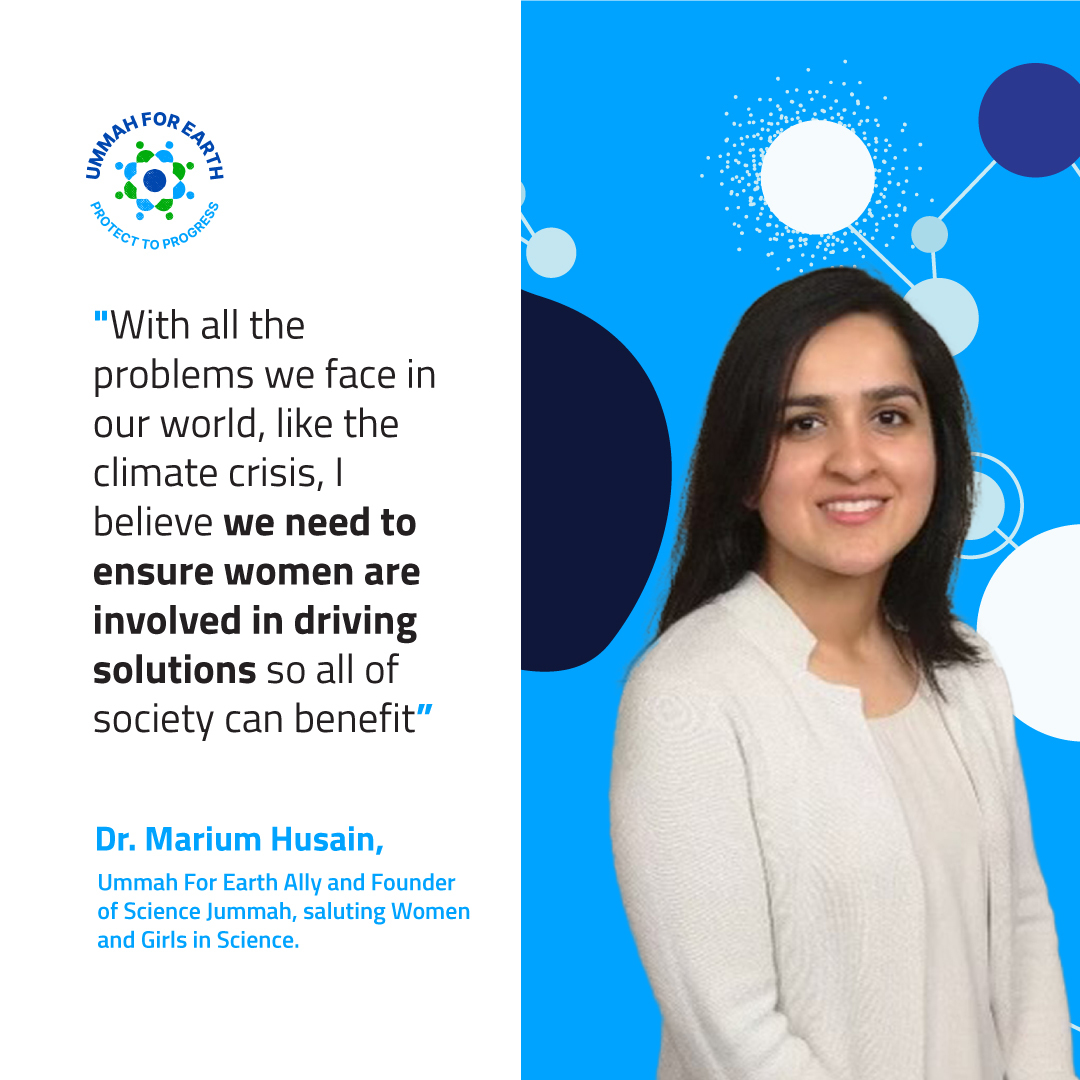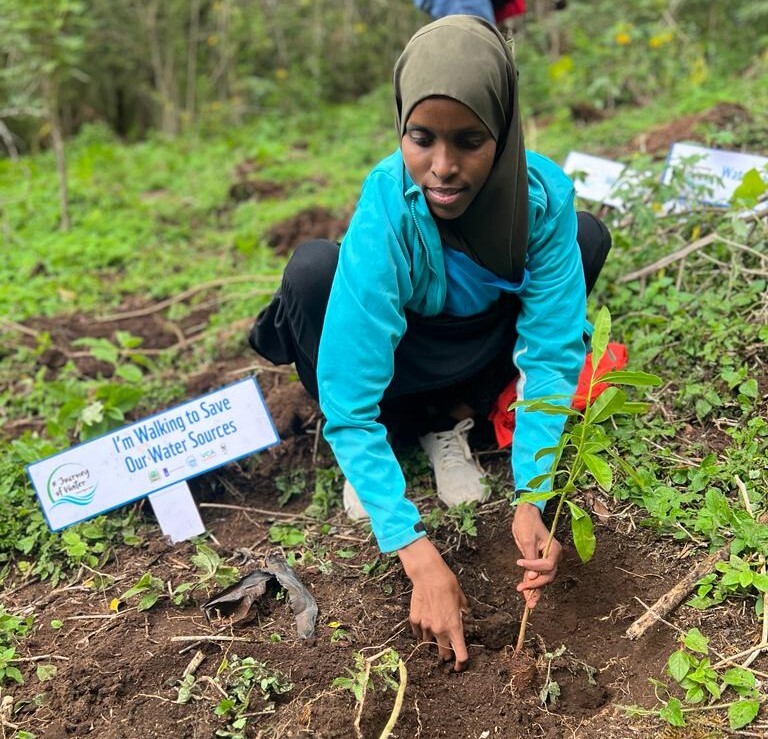
World Environment Day raises awareness and encourages action on pressing environmental issues. This year the theme is plastic pollution, a major global challenge that threatens the health of the planet and all its inhabitants.
Plastic pollution is a complex problem that requires a multifaceted solution. Governments and businesses have taken steps to address the issue, but it’s not enough. It is time for everyone to accelerate their actions and transition to a circular economy.
The circular economy is an economic model that aims to keep resources in use for as long as possible, reducing waste and pollution. Products and materials are reused, repaired, or recycled, and waste is minimised.
From an Islamic perspective, the concept of the circular economy is in line with the principles of sustainable development, environmental protection, and the responsible use of resources. In Islam, the concept of resource conservation is rooted in the principles of tawheed, a principle that emphasises the oneness of God, and khalifa, which means stewardship of the Earth and its resources.
The Qur’an and Hadith contain numerous references to the importance of environmental conservation and the responsible use of resources. For example, in Surah Al-Baqarah, verse 60, Allah instructs the Israelites to “eat and drink, but waste not by excess, for Allah loves not the wasters.”
In Islamic tradition, the concept of Sadaqah Jariyah, or ongoing charity, emphasises the importance of leaving a positive and lasting impact on the world. This concept can be applied to the circular economy, where resources are used, and then regenerated in a sustainable manner, leaving a positive impact on the environment and society. Furthermore, Islamic finance principles such as zakat, or almsgiving, can be used to support circular economy initiatives by providing funding for sustainable businesses and projects that promote resource conservation and environmental protection.
Overall, the circular economy aligns with Islamic values and principles, and can be viewed as a model for sustainable development that promotes responsible resource use, environmental protection, and leaving a positive impact on future generations.
Microplastics, consumerism and cosmetics
One of the most concerning aspects of plastic pollution is microplastics. These tiny particles are present in everyday items – from clothing and cosmetics, to cigarettes. They enter the environment through a variety of sources, including marine plastic litter, plumbing runoff, and production facilities.
Microplastics have both toxic and mechanical effects on marine life and can lead to issues such as reduced food intake, suffocation, behavioural changes, and genetic alteration. Microplastics can affect humans too, we can inhale microplastics from the air, ingest them from water, and absorb them through the skin.
Studies have shown that microplastics can accumulate in the body, causing significant health issues such as inflammation and damage to organs.
In Islam, there is a strong emphasis on the preservation and protection of the environment. Muslims are encouraged to be stewards of the earth and to care for all of Allah’s creation. Prophet Muhammad (peace be upon him) is reported to have said, “The earth is green and beautiful, and Allah has appointed you as His stewards over it. He sees how you acquit yourselves” (Muslim).
As Muslims, we should strive to reduce our plastic footprint and avoid products that contribute to the pollution of our oceans and harm our fellow creatures. We should also support campaigns and initiatives that aim to combat plastic pollution, such as the Clean Seas campaign and the New Plastics Economy Global Commitment.
We can make a difference
The Islamic hadith, “Every action is but by its intention” highlights the importance of considering the motivations behind our actions. This principle can be applied to many aspects of life, including consumerism.
We can make a difference by choosing products that have minimal packaging and examining ingredient lists to avoid products that contain microplastics. We can also use natural and eco-friendly alternatives to conventional personal care products that contain microplastics.
Consumerism is a pervasive force that drives much of our daily lives. We are constantly bombarded with advertisements and messages encouraging us to buy more, consume more, and live a lifestyle that revolves around material possessions.
However, it’s important to consider the intentions behind our consumer choices. Are we buying things simply because we want to fit in with a certain crowd or because we feel like we need to keep up with the latest trends? Or are we making conscious choices based on our values and priorities?
If we approach consumerism with the intention of mindfully choosing products that align with our values, we can make a positive impact on the world. For example, we can choose to purchase products that are ethically sourced, environmentally friendly, and produced by companies that prioritise social responsibility.
It’s also important to consider the impact of our consumer choices on our own spiritual well-being. The fast-moving consumer goods market often encourages us to grab the cheapest and easiest options, but this can come at a great cost to the environment. When we make the effort to be informed and intentional in our choices, we can reduce the flow of plastic in the oceans and preserve resources for future generations.
By approaching consumerism with the intention of mindfully choosing products that align with our values and using our resources to make a positive impact on the world, we can create a more sustainable and fulfilling way of life.
Let us strive to be mindful consumers, conscious of the impact of our choices, and committed to creating a more sustainable future for all. The Islamic Hadith states, “Verily, every action is but by its intention.” This means that the intention behind our actions is just as important as the action itself. When it comes to consumerism and our impact on the environment, it is important to examine our intentions and the consequences of our actions.
It is not enough to simply blame other countries or communities for the plastic pollution problem. Instead, we must take responsibility for our own actions and make changes in our own consumption habits. By doing so, we can create a ripple effect and inspire others to do the same.
The plastic pollution crisis is a reminder that our actions have consequences. We must all take responsibility and make changes in our daily lives to reduce our plastic footprint. To #BeatPlasticPollution everyone must step toward a more sustainable future. Together, we can make a difference.



